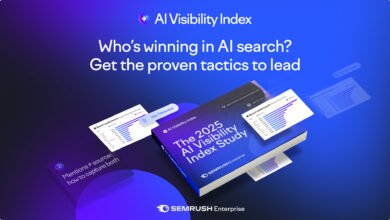Enhance Your Brainpower with AI for Smarter Thinking

▼ Summary
– “Sloppers” are people who rely heavily on AI chatbots like ChatGPT for everyday decisions and tasks.
– These individuals use AI for various activities, from choosing meals to writing emails and seeking relationship advice.
– Outsourcing decisions to AI weakens their ability to make choices and reduces their knowledge-building skills.
– An MIT study found ChatGPT users performed worse on memory, focus, and critical thinking tests compared to non-users.
– EEG data showed the most significant decline in brain activity and recall among users under 30.
Artificial intelligence has revolutionized decision-making, but leaning too much on smart assistants might dull our mental edge. More people than ever use AI for daily choices, what to eat, how to respond to messages, even when to sleep. Though convenient, emerging research warns that constant reliance could erode fundamental cognitive abilities.
Scientists tracking frequent AI users noticed an unsettling pattern. Participants in a MIT experiment who regularly consulted ChatGPT showed weaker memory retention and analytical skills than those solving problems alone or using standard search tools. Neurological scans highlighted the most pronounced mental slowdown in younger demographics, sparking concerns about lasting impacts on independent reasoning.
A new label, “sloppers”, has emerged for those who habitually outsource thinking to algorithms. Whether composing work emails or navigating personal conflicts, they bypass mental exercises that traditionally strengthened judgment. While AI undoubtedly boosts productivity, chronic dependence appears to shrink problem-solving capacity and information recall. Instant solutions threaten to cultivate minds less skilled at evaluating data or generating novel ideas.
The solution isn’t abandoning AI but integrating it thoughtfully. These systems shine at crunching numbers and offering options, yet human discernment remains unmatched. Finding the sweet spot lets us enjoy technological advantages while preserving our capacity for innovation and logical reasoning. Success means treating AI as a thinking aid rather than letting it become a crutch for the cognitive muscles that make us uniquely human.
(Source: COMPUTERWORLD)





